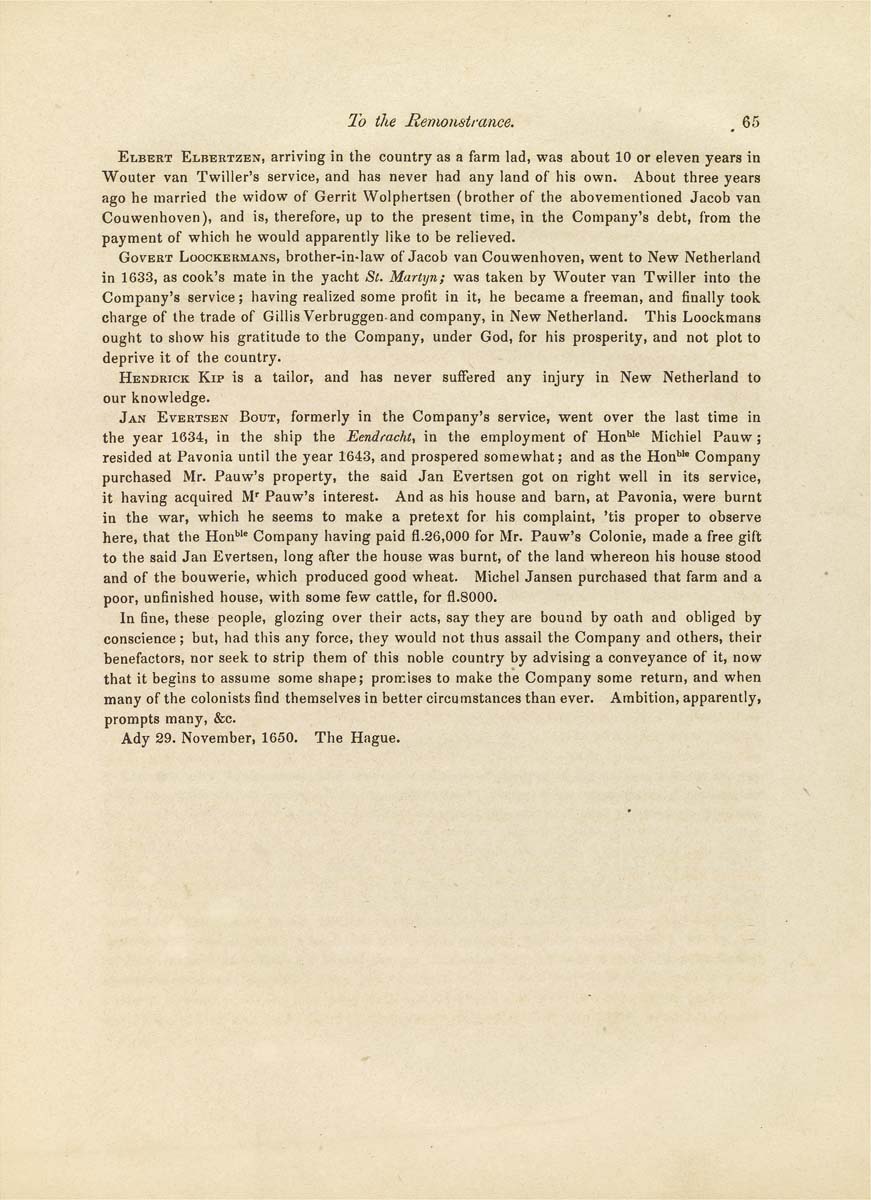To the Remonstrance. ^ 65
Elbert Elbertzen, arriving in the country as a farm lad, was about 10 or eleven years in
Wouter van Twiller's service, and has never had any land of his own. About three years
ago he married the widow of Gerrit Wolphertsen (brother of the abovementioned Jacob van
Couwenhoven), and is, therefore, up to the present time, in the Company's debt, from the
payment of which he would apparently like to be relieved.
GovERT Loockermans, brother-in-law of Jacob van Couwenhoven, went to New Netherland
in 1633, as cook's mate in the yacht St. Martyn; was taken by Wouter van Twiller into the
Company's service; having realized some profit in it, he became a freeman, and finally took
charge of the trade of Gillis Verbruggenand company, in New Netherland. This Loockmans
ought to show his gratitude to the Company, under God, for his prosperity, and not plot to
deprive it of the country.
Hendrick Kip is a tailor, and has never suffered any injury in New Netherland to
our knowledge.
Jan Evertsen Bout, formerly in the Company's service, went over the last time in
the year 1634, in the ship the Eendracht, in the employment of Hon'^* Michiel Pauw;
resided at Pavonia until the year 1643, and prospered somewhat; and as the Hon*"^* Company
purchased Mr. Pauw's property, the said Jan Evertsen got on right well in its service,
it having acquired M' Pauw's interest. And as his house and barn, at Pavonia, were burnt
in the war, which he seems to make a pretext for his complaint, 'tis proper to observe
here, that the Hon'''* Company having paid fl.26,000 for Mr. Pauw's Colonie, made a free gift
to the said Jan Evertsen, long after the house was burnt, of the land whereon his house stood
and of the bouwerie, which produced good wheat. Michel Jansen purchased that farm and a
poor, unfinished house, with some few cattle, for fl.8000.
In fine, these people, glozing over their acts, say they are bound by oath and obliged by
conscience; but, had this any force, they would not thus assail the Company and others, their
benefactors, nor seek to strip them of this noble country by advising a conveyance of it, now
that it begins to assume some shape; promises to make the Company some return, and when
many of the colonists find themselves in better circumstances than ever. Ambition, apparently,
prompts many, &c.
Ady 29. November, 1650. The Hague.
|








